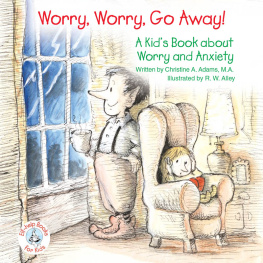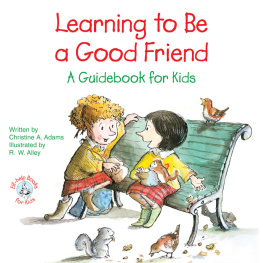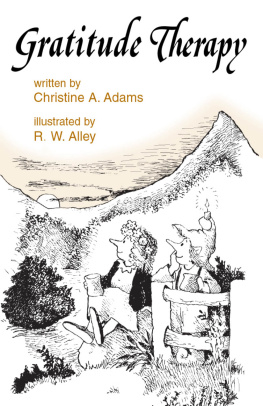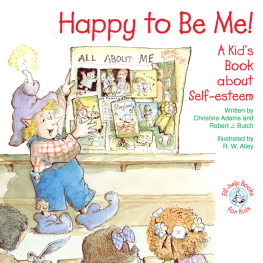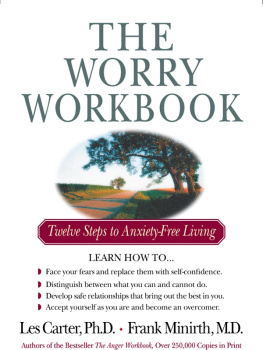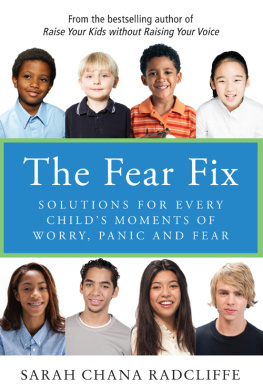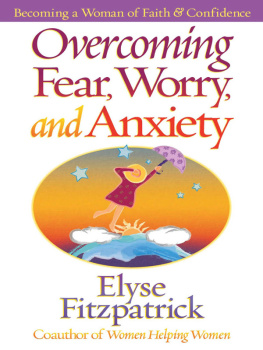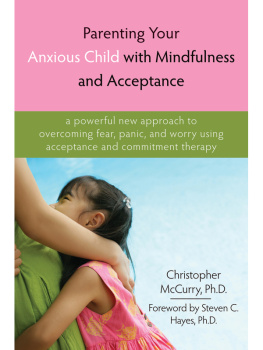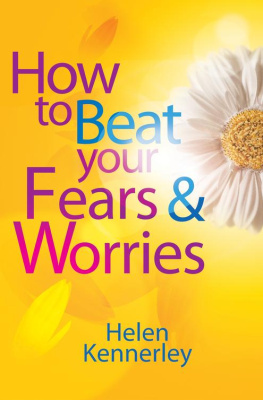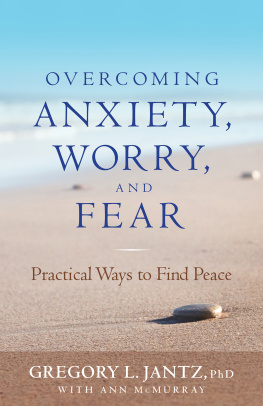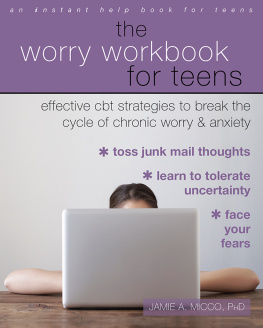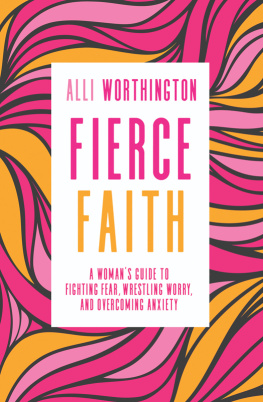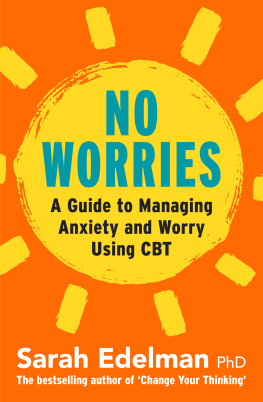Worry, Worry, Go Away!
A Kids Book about Worry and Anxiety
Christine A. Adams, M.A.
Illustrated by R. W. Alley

Abbey Press
THIS BOOK IS DEDICATED
to my grandchildren:
Harrison Edward Hanley
Benjamin Michael Firsick
James Elliot Firsick
Grace Lenore Christine Hanley
Diana Mary Butch
Katie Butch
A Message to Parents, Teachers,
and Other Caring Adults
All kids experience normal worriesseparation anxiety, stranger anxiety, fear of monsters in the dark, or of a circus clowndifferent circumstances, real and imagined. To overcome these anxieties, a child needs to understand what worry is, where it comes from, and how to challenge and contain it.
Since young children dont know that being afraid isnt the same as being in danger, they believe that their worries make sense. Unless they are given other guidance, they are often left listening to negative self-talk. For this reason, therapists use Cognitive Behavioral Therapy to help kids with anxiety.
Working through worry and anxiety is extremely important because many teen and adult anxiety disorders start in childhood. The presence, and the example, of a responsive and informed parent or helper can establish patterns of behavior and thinking that could last a lifetime.
With this psycho-educational approach, kids are taught to question the accuracy of their first reaction, which is: What if the most awful thing happens? They learn to STOP, to THINK TWICE, and to identify What else might happen? They are taught to deal with the normal physical reactions of fear and anxiety through relaxation techniques and visualization.
Using this approach, they can reappraise what they fear with new thinking and calm breathing. Finally, when they are ready, they can overcome their fear with a step-by-step exposure to it.
Some childrens worries are related to performance and general self-esteem issues. Its important to remind children of how special they are and how far theyve come in overcoming previous fears.
Finally, kids need to know theyre not alone, but have a supportive parent or adult to listen to them. They need to believe that when that parent or adult is not available, God is always there with them, beside them, all around them, surrounding them with His Love.
Christine A. Adams, M.A., and Robert J. Butch, LICSW

What Is a Worry?
A worry is an idea that pops into your mind when youre scared. It may be real or make believe.
Y ou have a wonder-ful mind. It talks to you about real things and make believe things. It might say you are in real danger, or that someone wont like you, or will make fun of you. That is your worry voice saying, What if something bad happens?
Y our smart voice tells you that these worries might not be true. Your smart voice says What else could happenmaybe it wont be so bad?
R emember, God gave you your wonder-ful mind. God helps you use your smart voice to figure out whats real and make believe.

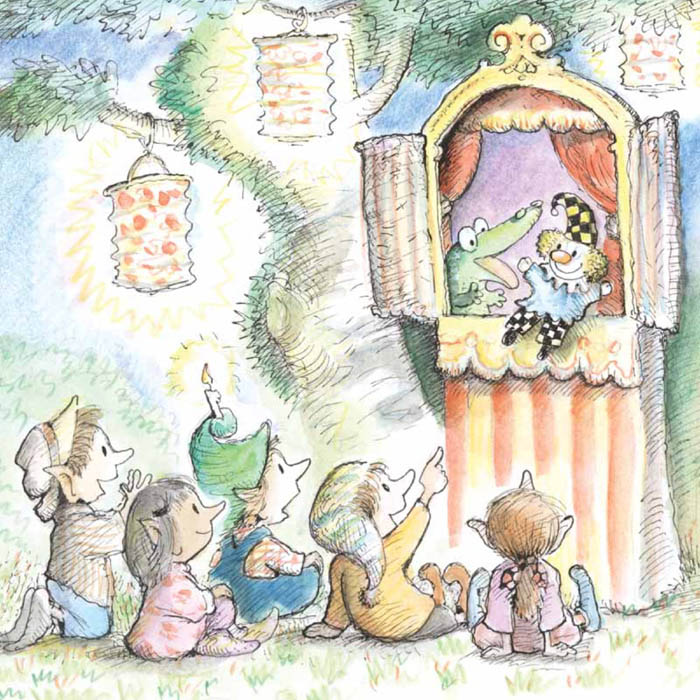
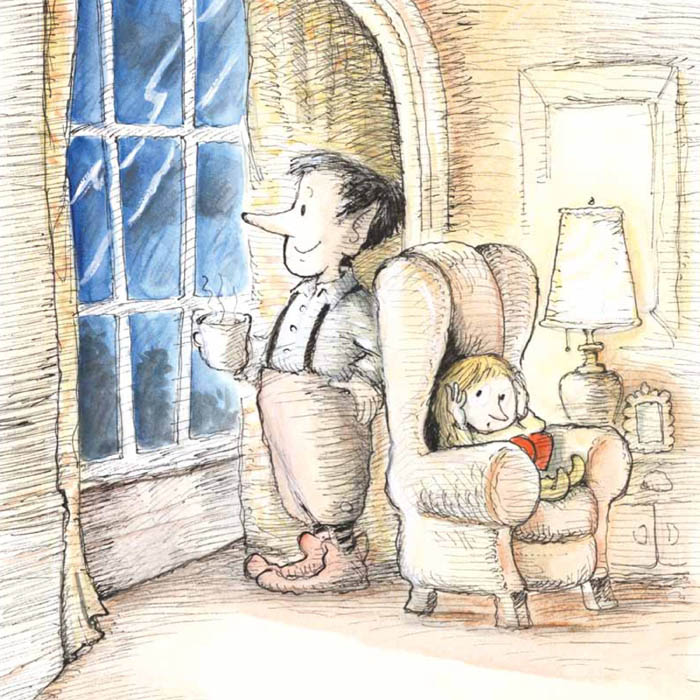

When We Need to Listen
to Our Worry Voice
G rown-ups tell us to look both ways when we cross the street, not to talk to strangers, and not to play with matches. We need to listen when our worry voice tells us to stay safe.
W hen we worry about getting a bad grade, we do our homework and study our spelling words. Its good when we listen to our worry voice telling us to do our best.
S ometimes, though, the worry voice gets turned on and theres nothing to be afraid of, like with bugs, monsters, or thunderstormsor it says we cant do something when we can. Thats not so good.
Y our job is to turn on your smart voice. It will tell you to STOP and THINK TWICE, to breathe and relax, and figure out if you should listen or not.

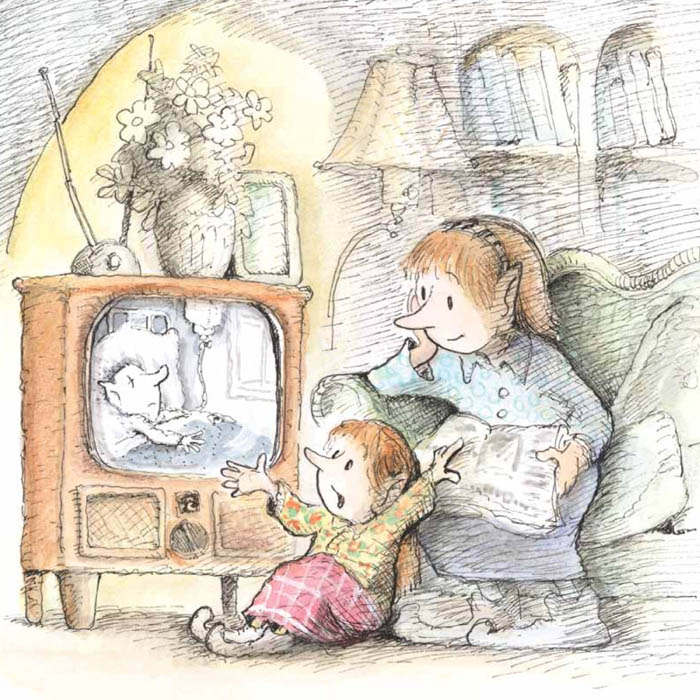

Where Do Worries Come From?
S ome movies, TV shows, and books can make us worry. Its easy to get mixed up about whats real and whats make believe.
E verybody feels afraid sometimes; but when youre a kid, lots of things seem scary. You may hear and see things you dont understand. When youre afraid, talk to your parents or a helpful grown-up.
T alking about your worries makes you feel safer. It helps your fear fade away and stop your worries from growing.

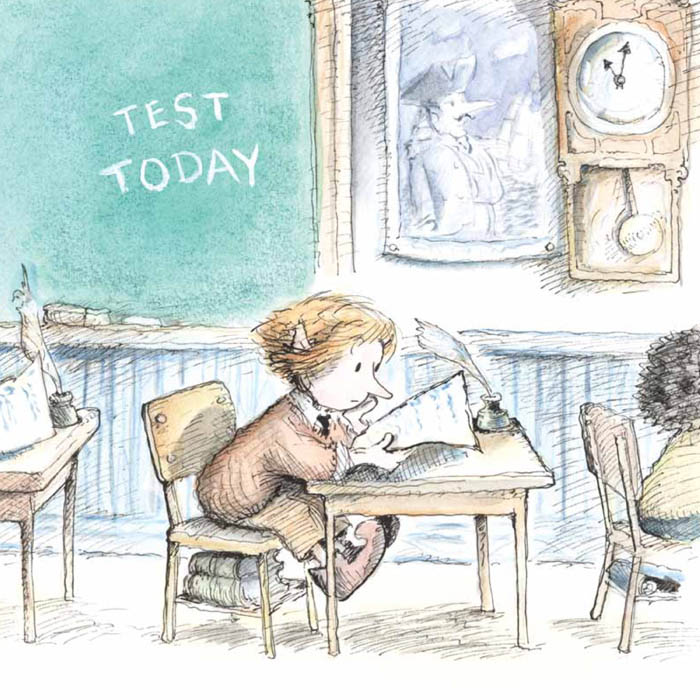

When Worries Grow Into Anxiety
W hen you listen to the worry voice too much, your worries get bigger. They get louder in your mind and seem true, even when theyre not. Somehow, worries get stuck and play over and over again. New ones pop up. This is called anxiety.
W orry is like rain. A little bit is good. It makes plants grow, giving us food. But a lot of rain can be bad. It covers the ground so nothing can grow.
W hen you worry a little about a spelling test, you study and get a good grade. When you worry too much, you get anxious and forget the words.
D ont let anxiety take over and keep you from doing your best. Let God help you. Be a worry-wise kid!


Slow Down, Relax, and Breathe
W hen you feel fear, whether its real or make believe, you might begin sweating, have butterflies in your stomach, get a headache, and feel like you cant think straight.
W hen you feel nervous and jittery, turn on your smart voice and remind yourself to slow down. Take a deep breathall the way into your belly. Hold that breath while you count slowly from 1 to 5. Let it out slowly and count from 1 to 5 again. Practice doing this now. If you do it 10 times, youll be calm. No kidding.
E xercise is also very good for you. Your body calms down and worries slip away. Eat healthy foods, like plenty of fruits and veggiesand keep moving.

